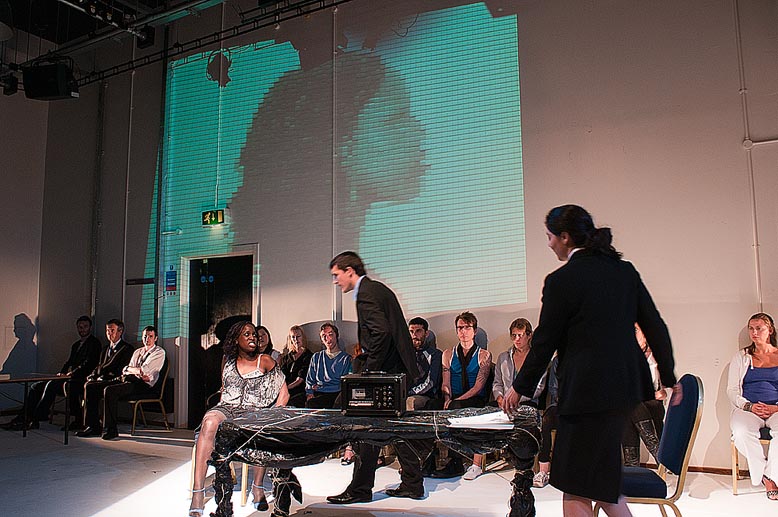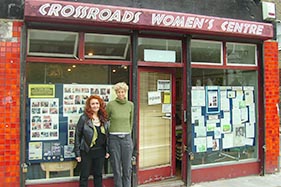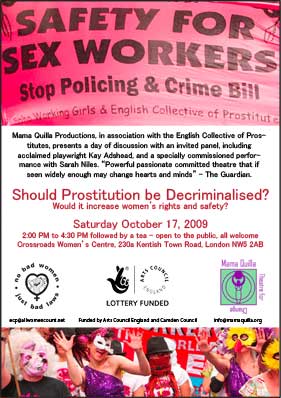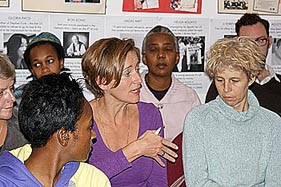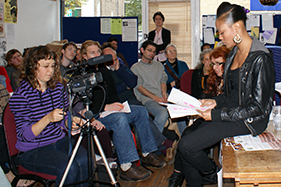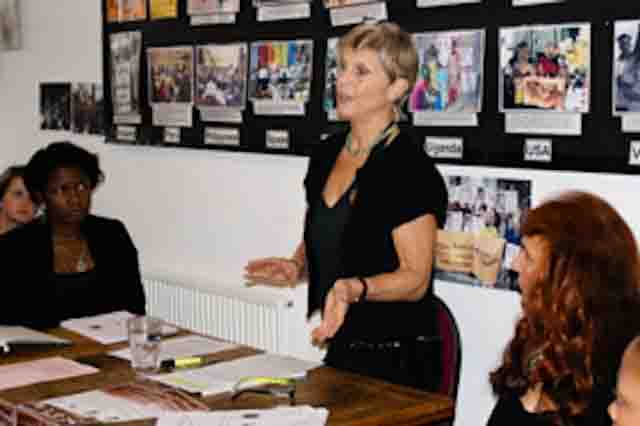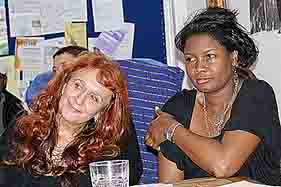Mama Quilla shows that theatre still has the capacity to address public issues.
—The Guardian
On 17 October 2009, Mama Quilla, funded by the Arts Council and Camden Council presented:
"A Day of Debate and Performance. Should Prostitution Be Decriminalised?"
As early as 2000, Westminster Council had made attempts to cleanse Soho of its sex workers by the compulsory purchase of 64 flats used by sex workers. This initiative was launched by the council together with the police and the anti brothel campaigners as a moral crusade – decency against sleaze and corruption.
The 64 flats were supposed to be returned to proper and permanent residential use for the older Soho residents. But Soho residents allege that this did not happen, that compulsorily purchased flats were sold to property developers who then rented them out at over £3,000 a month.
It is further alleged that flats in Greek St, compulsorily purchased, were bought by a well known porn baron, turned into a small sex club with a late night license, thus earning Westminster Council £21,000 per year.
At a packed Crossroads Women's Centre in Kentish Town, against the background of the then impending Policing and Crime Bill, Cari Mitchell, chair person for the event, introduced two working girls who spoke candidly and very movingly about their lives, and the impact that the passing of the Bill might have on their day-to-day safety. Academics, feminists, users of the centre, members of the general public, and other working girls debated the issues.
Would the decriminalisation of prostitution (as in New Zealand) make their lives safer? Would it contribute to a more tolerant and less hypocritical society? Or would it ultimately make society more dangerous and corrupt?
Would it empower and protect women or degrade and endanger them?
Does decriminalising the activities of prostitutes while criminalising their clients (the Nordic model) offer a middle ground or is it a contradiction in logic?
Is decriminalisation of prostitution a reinforcement of patriarchy? Would it make it more acceptable for men to buy sex, and is this necessarily a bad thing?
The decriminalisation of prostitution, arguably making it safer for women to earn a living selling sex, is one of the most fiercely debated, contentious and divisive issues in feminist politics for 100 years.
The author wants to convene a public inquiry into the workings of the whole planet... well why not?
— Benedict Nightingale, The Times (on Bites)
|


